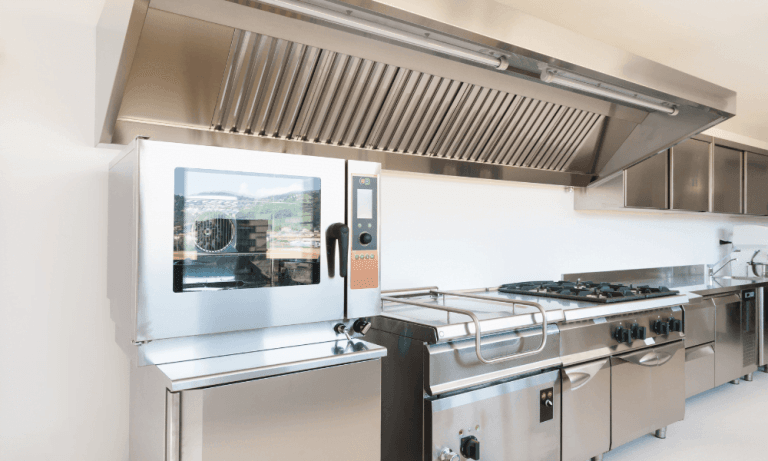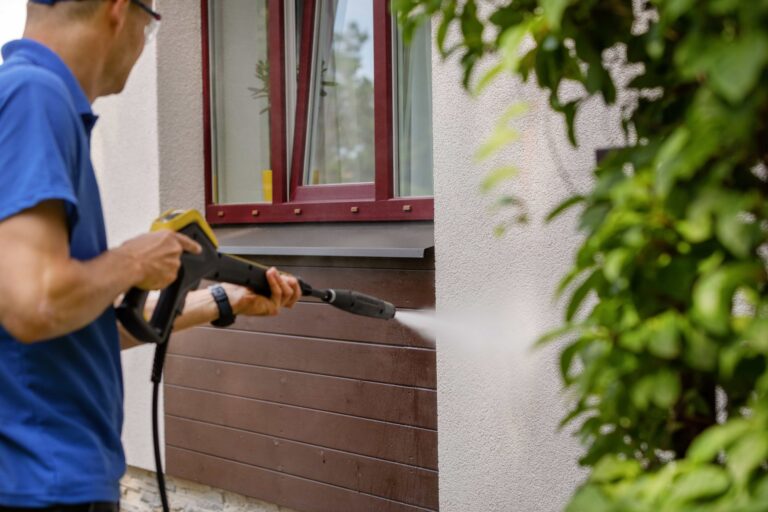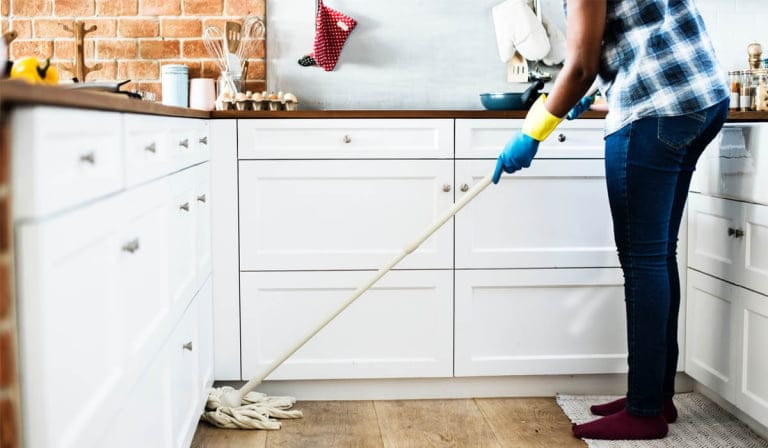Plastic surfaces pose a challenge to manufacturers of cleaning agents not only because of the difficulty in removing dirt, but primarily because of the large number of mistakes that many people make when choosing them. Some people treat plastic surfaces with neglect, claiming that it is impossible to damage them when using preparations not intended for cleaning them. It turns out that choosing the right ones not only makes it easier to remove dirt, but also protects the surfaces against dust accumulation and makes subsequent cleaning easier.
We clean plastic surfaces – From the article you will learn:
- What features and properties does plastic have?
- What products to use to clean plastic surfaces
- How to protect plastic surfaces from dirt and damage
Plastic, i.e. plastic
Plastic is a common name we use to describe plastic. Its basic ingredients are synthetic polymers, which are substitutes for metal, ceramics, wood and other materials. Plastics are made from pure polymer, polymer blends or polymers that have been chemically modified. Plastic is relatively light, which is why it is used in the production of so many items that we use at home, in the office and in the garden. It conducts heat well, but in the case of larger objects made of plastic, they are very sensitive to high temperatures.
Unmodified plastics have low tensile strength, unlike reinforced materials such as laminate or composite. They, in turn, are characterized by relatively high flexibility.
Alkaline surface cleaners
The purpose of a cleaning product is determined by, among others: its pH coefficient. We distinguish acidic, neutral and alkaline preparations. To clean plastic surfaces, we use alkaline agents whose pH is higher than 7. Rules for fat killer. They also handle oils, greases, dyes and even glue very well. An example of such an alkaline agent for cleaning plastic surfaces is Fast Plast. It is used to wash all surfaces made of plastic. It is used at home, in the office, in the garden, as well as in cars and other vehicles.
Cleans and protects effectively and safely
Plastic surfaces are present both at home, in the office, as well as in the garden and on the balcony. Plastic is a material ubiquitously used in the production of kitchen and computer equipment, electronics and garden furniture. A cleaning agent should be available in every home, as well as in the equipment of a professional cleaning company or public premises. One of such agents intended for cleaning plastic surfaces is Fast Plast. It is used to remove dirt from electronics and household appliances, computer equipment, windows and garden furniture. It is perfect for cleaning surfaces with a porous structure.
Fast Plast is easy to use and safe for plastic surfaces as well as the people who use it. It removes dirt, but also prevents dust from accumulating and creates an antistatic coating. Its great advantage is the lack of streaks and stains left after cleaning.
Universal plastic cleaner
Plastic is ubiquitous in our environment. We deal with surfaces made of plastic at home, at work, in stores, in offices, and so… everywhere. In a house, cabinet fronts, housings for electronics and household appliances, decorations, doors and window frames are often made of plastic. The situation is similar in the office, where there is a large amount of electronic equipment, which is particularly susceptible to dust accumulation, which results from the conditions in the office rooms.
Fast Plast is intended for cleaning all plastic surfaces. Its universality makes it replace several other products. With one agent you can clean countertops, chairs, electronic equipment and all other plastic elements found in your home, office and garden.
How to clean plastic surfaces?
Before using Fast Plast, shake the container. Then we apply it directly to the surface or a soft cloth, and then wipe it with a damp cloth. It was created using ingredients with antistatic properties, which helps create a protective layer against excessive dust accumulation, thus helping to keep it clean for longer.
Fast Plast can be used for electronics and household appliances, and is suitable for cleaning microwave ovens, computer equipment at home and in the office, windows and doors, as well as garden furniture and all other plastic surfaces.
Plastic surfaces – protection
Surfaces made of plastic are relatively resistant to dirt. They are easy to clean and remove all kinds of greasy and oily stains and other contaminants. However, dust and dirt accumulate on them, so antistatic agents should be used to reduce this effect. However, plastic does not respond well to high temperatures. Vivid colors may lose their intensity due to frequent exposure to sunlight. It is therefore recommended to protect garden furniture from the sun when not in use. A good way is also to regularly use cleaning products that protect the color, an example of which is, among others: Clinex Fast Plast.
Plastic surfaces are also susceptible to scratches and scratches. Cleaning them regularly is one way to protect them from damage. They remove dust, sand and other abrasive dirt, reducing the risk of scratches.
Plastic surfaces require proper care, even though they are highly resistant to dirt. Not all agents allow effective and quick removal of more difficult dirt, and additionally protect the surfaces against dust accumulation and color fading. Choose agents with an alkaline pH, antistatic properties, which remove dirt from porous surfaces and do not leave unsightly streaks.
Summary
- Plastic is a plastic material obtained from pure polymer, polymer blends or chemically modified polymers. It is relatively light and conducts heat well. However, larger plastic items are very sensitive to high temperatures.
- Agents with an alkaline pH higher than 7 are intended for cleaning plastic. They remove greasy dirt, oils, grease, dyes and glue.
- You can clean plastic surfaces with the universal Fast Plast agent, which removes dirt and prevents dust from accumulating, creating an antistatic coating.
- To clean plastic surfaces, we use a soft cloth and apply a cleaning agent. Then wipe it with a damp cloth.
- To prevent dirt, we use products with antistatic properties. We avoid frequent exposure to the sun.






